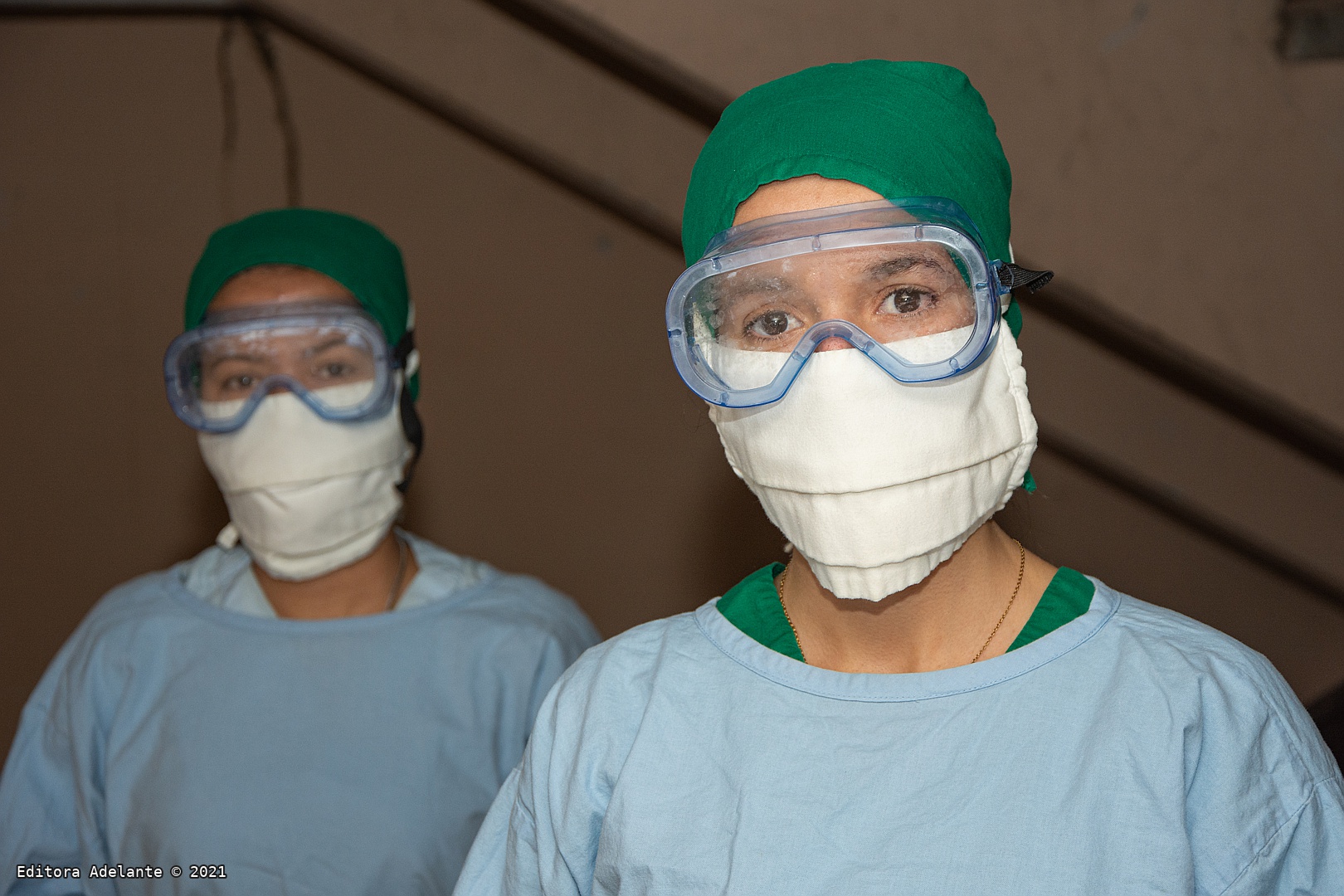CAMAGUEY.- Every day students from the Carlos J. Finlay University of Medical Sciences in Camagüey knock on our doors to ask and worry about our health. But they are not the only students in that branch who stay up to take care of us after the outbreak of COVID-19. Laboratories, statistics departments and isolation centers are also scenarios in which their learning work impacts from the utility.
Among those who rotate through the Red Zones of the isolation centers are first-year nursing students Roxana García Serrano and Elianis González González, who face danger for the first time.
--"How do they get to the isolation center?"
Roxana: They sent us information via WhatsApp where volunteers were requested to help in the places of isolation. When I read that I thought: "Tremendous opportunity, I like the idea and I want to try myself." In a short time I responded and asked them to tell me what the procedure was like, where I should go, what time and what I had to bring. The day it was my turn I was so anxious that I didn't even wait for the transport.
Elianis: As we are in the same classroom, although we had never seen each other because all the classes are virtual, the text also reached me on WhatsApp. Mine was immediately, I said, I'm going as a volunteer. I am a very risky girl and I needed a challenge like that. It is a personal decision that no one forces you to make, part of your commitment to society and to the country.
—How did the family react when they found out about your choice?
Roxana: When you tell the family that you are going to work in the Red Zone of a center to isolate suspects, there are always scares, I think that has happened to everyone. And more in my case, because I suffer from bronchial asthma.
“My parents got a little sensitive but they understood that it was my decision. I chose a career where I will have to face all kinds of diseases and risks. I saw this opportunity as a personal test, that if it did not pass, if I did not face it well and did not feel prepared, then I was not in the right place ”.
Elianis: At first my mom didn't like the idea very much. I could see the fear in her eyes when she told her. I understood her, but she should do the same to me. After talking for a while and explaining to her that if I complied with the protection measures in detail, nothing would happen to me, as well as the importance of such an experience, she decided to support me.
--"What jobs do you do inside the isolation center?"
Roxana: We take care, together with other colleagues, of bringing food to the patients, we carry out messaging and other tasks that are necessary. We are really willing to support in everything that is needed, at the same time that we learn about our future profession.
Elianis: Although I consider it an advantage to spend time here because of the teachings transmitted, we only serve as facilitators. We do not carry out any technical activity related to the specialty because being in the first year we are not prepared for it.
—While you are in the Red Zone, how do you organize the academic part?
Roxana: Like everyone else, ours has been an atypical course. We started the first year and we have never been to the classroom, nor do we know the classmates personally. All classes have been "taught" by WhatsApp and through digital folders that they provide us at school. The works guide us through these same routes and we must deliver them.
“Until we entered here, we complied with the teaching on date; however, as we were unable to dedicate ourselves to studying, it was explained to us that once we were outside, we would have more time to complete the work that we are missing ”.
Elianis: In addition, we have been fortunate to have some colleagues who keep us up to date and keep the folders that the professionals leave for us so as not to be so late. On the other hand, we take advantage of the stay inside, and when we have any questions we ask the professional doctors and nurses that surround us. Several times his explanations have been true classes.
--What has been the most difficult in this stage?
Roxana: The mere fact of being in a Red Zone generates fears, especially if you have no experience. That uncertainty of not knowing if you will be able to complete the task without errors, or if the patients and workers will value your daily effort was the most difficult for me at the beginning.
Elianis: I have suffered a little more going down and up the stairs so many times a day, I end up very tired. Neither has it been easy to handle the heat with the protective accessories because our glasses fog up and it takes us a bit of work. However, we adapt, we know that taking good care of yourself is essential.
--"The greatest joys?"
Roxana: First of all, be part of a team. Inside here is what we are, a group of people who sometimes do not sleep as long as patients have the care they deserve. Second, knowing me useful in difficult times for the country, even though I have not even passed the first year yet.
Elianis: What could be more important to us that the professionals in your sector recognize your effort and praise your work. That is only compared to the words of gratitute from the people who pass through the center. I knew that choosing Nursing was going to give me many good things, which I did not imagine it would be so soon.
- Translated by Linet Acuña Quilez



